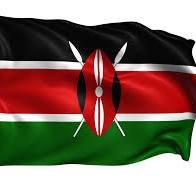Kenya- The Enduring Shadow of Corruption and the Government's Authoritarian Grip. By Jo Ikeji-Uju

Governance and Corruption: Corruption remains a pervasive issue, with allegations of misuse of public funds and a lack of transparency.
The government faces criticism for neglecting systemic challenges and for its perceived heavy-handed approach to dissent.

++++++++++++++++++++++++++++++++++++++++++++++++
Corruption and a perceived lack of transparent governance continue to cast a long shadow over Kenya, fueling widespread public discontent and undermining efforts for stability and progress. In June 2025, these issues remain central to the ongoing unrest, highlighting a profound disillusionment with a government increasingly criticized for its heavy-handed approach to dissent and its failure to tackle systemic challenges.
Pervasive Corruption and Misuse of Public Funds-
Allegations of corruption are deeply entrenched in the public psyche, contributing significantly to the erosion of trust in the government. Reports from early 2025, including the 2024 Corruption Perceptions Index (CPI) released by Transparency International (TI) in February 2025, show Kenya's score remaining largely stagnant at 32 out of 100, indicating persistent high levels of public sector corruption. This score falls below both the Sub-Saharan African and global averages, underscoring the severity of the problem.
Public surveys reveal a significant dissatisfaction with integrity, transparency, and accountability in public service delivery. A National Ethics and Corruption Survey (NECS) in 2023 found that 60% of respondents were dissatisfied with these aspects, with corruption ranked as the fourth most pressing problem after the high cost of living, unemployment, and poverty.
The impact of corruption is felt directly by ordinary Kenyans. It inflates project costs, leads to delays in completion, results in poor quality public services, and diverts essential resources, exacerbating inequality and disproportionately affecting the poor. For instance, the National Youth Service (NYS) has been at the center of multiple graft scandals, with allegations of nearly $100 million in public funds being siphoned off through ghost suppliers and fake invoices. Such incidents highlight a pattern of misuse of public funds that directly impacts youth development and opportunities.
Lack of Transparency and Accountability-
Beyond direct embezzlement, the government faces significant criticism for its lack of transparency in financial management, particularly concerning public debt. While the Cabinet Secretary for the National Treasury acknowledged public concerns about a "perception of lack of transparency in the management of public debt" in a June 2025 budget statement, tangible steps to address this have been slow. The request for the Auditor General to conduct a comprehensive audit of public debt, while a stated intention, has yet to yield public results that restore confidence.
Moreover, recent legislative efforts to address governance concerns, such as the Government-Owned Enterprises Bill, 2025, and the Public Procurement and Asset Disposal (Amendment) Bill, 2025, are still in the parliamentary process. While these bills aim to enhance transparency and efficiency through merit-based recruitment and e-procurement, their effective implementation and impact on curbing corruption remain to be seen.
The International Monetary Fund (IMF) conducted a "Diagnostics Mission" in June 2025, at the request of President Ruto's government, to identify governance challenges and systemic weaknesses related to corruption. While the IMF's report and recommendations are expected by the end of 2025, public calls for the report to be made public underscore the prevailing demand for transparency from within Kenya.
Heavy-Handed Approach to Dissent-
The government's response to the recent protests in June 2025, and indeed to dissent over the past year, has drawn strong condemnation for its heavy-handedness and apparent disregard for democratic principles. Instead of engaging with the legitimate grievances of protesters, the administration has resorted to:
-
Excessive Force: Police have repeatedly used tear gas, rubber bullets, and live ammunition, leading to numerous fatalities and injuries. Reports from the Kenya National Commission on Human Rights (KNCHR) and Amnesty Kenya confirm deaths and hundreds of casualties in the June 2025 protests, largely attributed to police action.
-
Arbitrary Arrests and Detentions: Numerous individuals, including activists and organizers, have been arrested, sometimes without proper booking, raising concerns about due process and legal rights. The death of blogger Albert Ojwang in police custody in early June 2025, after allegedly criticizing a senior police officer, ignited widespread outrage and became a major catalyst for the protests.
-
Suppression of Media Freedom: The Communications Authority of Kenya (CA) issued a directive to halt live media coverage of the protests and even temporarily deactivated signals of major television stations. While this directive was swiftly overturned by a high court, it signaled a clear attempt to control information and stifle independent reporting.
-
Delegitimization of Protests: Government officials have frequently dismissed the protests as "terrorist acts disguised as dissent" or "attempted coups," attempting to undermine the legitimacy of citizens' grievances and frame them as criminal or subversive. There are also credible reports of "hired goons" infiltrating peaceful protests to provoke violence, further justifying police crackdowns.
This approach not only violates fundamental human rights, including freedom of expression, assembly, and access to information, but also exacerbates public anger and mistrust. Human rights organizations and international bodies have consistently urged the Kenyan government to exercise restraint, uphold the rule of law, and engage in meaningful dialogue to address the root causes of discontent.
Conclusion-
The ongoing protests in Kenya are a testament to the profound disillusionment stemming from persistent governance failures, particularly the pervasive issue of corruption and the government's perceived authoritarian response to public outcry. As long as allegations of misused public funds continue and the government prioritizes suppression over genuine reform and transparent accountability, public trust will remain eroded. The path to stability and genuine progress in Kenya hinges on the government's willingness to listen to its citizens, address systemic corruption with concrete action, and embrace democratic principles in its engagement with dissent.
- Questions and Answers
- Opinion
- Motivational and Inspiring Story
- Technology
- Live and Let live
- Focus
- Geopolitics
- Military-Arms/Equipment
- Securitate
- Economy
- Beasts of Nations
- Machine Tools-The “Mother Industry”
- Art
- Causes
- Crafts
- Dance
- Drinks
- Film/Movie
- Fitness
- Food
- Jocuri
- Gardening
- Health
- Home
- Literature
- Music
- Networking
- Alte
- Party
- Religion
- Shopping
- Sports
- Theater
- Health and Wellness
- News
- Culture

